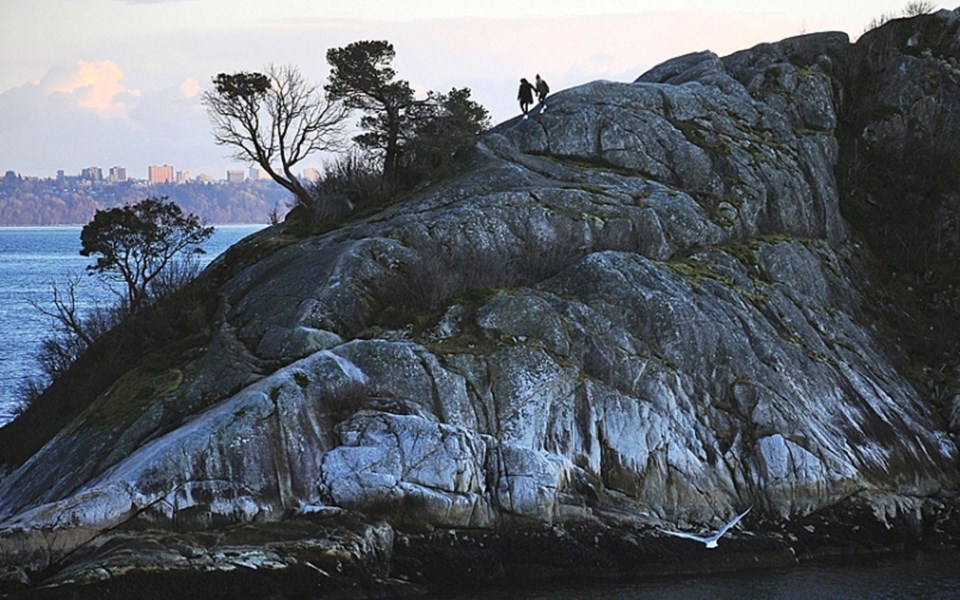After decades of being unpaid and underappreciated, West Vancouver's forests, foreshore and creeks are getting the recognition that comes with being attached to dollar signs.
West Vancouver became one of the first municipalities in Canada to move toward compiling an inventory of natural assets at a Tuesday evening meeting this week.
The district's grasslands, forests, foreshore and waterways should be valued at between $1.14 and $3.2 billion, according to a preliminary inventory presented to council by Susan Todd of Solstice Sustainability Works, who compiled a preliminary inventory for the municipality.
In addition to recreation, West Vancouver's natural assets provide water filtration, carbon sequestration, stormwater management and erosion control. There are also avoided costs, according to Todd, who explained that a reduction in air pollution facilitated by forests likely results in lower health-care expenditures.
Many of the benefits of nature, particularly in terms of personal health, have yet to be quantified, agreed Mayor Mary-Ann Booth.
"The community is coming around to some principles that have been acknowledged by First Nations for many years ... around respecting the land [and] what the land provides," she said.
Tuesday's motion marks a change in mindset, according to Coun. Craig Cameron.
Rather than an "airy fairy idealistic notion," Tuesday's motion zeroes in on the "actual economic value" of nature, according to Cameron.
"Money is a proxy for value," he told the gallery.
While developments were once erected within a whisper of creeks, there is now an objective to limit development in areas with rich natural capital, Cameron added.
The district will include natural assets in its financial statements, which could be complicated by the sticky issue of ownership as well as the interconnectedness of ecosystems beyond municipal boundaries, noted West Vancouver's director of financial services Isabel Gordon.
However, putting nature in the asset ledger will mean district staff will now be tasked with drawing up maintenance plans for creeks, forests, grasslands and foreshore.
"These ecosystem services are very valuable and need, at a minimum, at least as much consideration as we're giving our other assets, and possibly more," Gordon said.
While it's possible there will be an impact on the district's asset levy, Gordon told council that natural assets generally don't depreciate and carry no replacement costs, setting them apart from other municipal assets.
Couns. Sharon Thompson and Bill Soprovich welcomed the motion, with Thompson calling it "essential" in dealing with climate change.
West Vancouver Streamkeepers president John Barker was similarly effusive, calling the motion "a major step" towards protecting and, where necessary, enhancing the natural habitat.
Barker discussed the resilience of the creeks and the importance of "just letting nature get on with things."
Council approved the plan 6-0.




